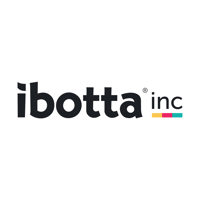Care Coordination, Cognitive Screening & Assessment Support
The Care Coordinator will play a vital role in supporting the BrainCheck screening and assessment process for patients of our partner practices. Screening will be for patients scheduled for Annual Wellness Visits (AWV) or those with suspected cognitive impairment. The Care Coordinator will assist with administering cognitive assessments, gathering patient information, and contributing to efficient workflows to ensure timely identification and further evaluation of patients who may benefit from dementia care. This role may include some remote work.
Key Responsibilities:
- Administering Cognitive Screening Tools:
- Administering BrainCheck cognitive screening tools
- Following established protocols for test administration and documentation.
- Patient Intake and Preparation:
- Scrubbing schedule for upcoming AWV appointments, gathering relevant patient information, and sending remote testing link to patient prior to appointment.
- Following up with patients on incomplete tests.
- Remote proctoring tests as needed or arranging in-person testing before appointment.
- Documentation and Record Keeping:
- Updating and maintaining electronic medical records (EHRs) with patient information, test results, and screening outcomes.
- Ensuring accurate documentation of all patient interactions and procedures.
- Billing Support / Prior Authorization Processing:
- Assist with billing and insurance processing tasks, including verifying insurance coverage and obtaining pre-authorizations.
- Initiate and manage the prior authorization process for diagnostic testing, medical procedures, and referrals.
- Gather and organize patient medical records, treatment plans, and other relevant documentation required for authorization submissions.
- Communicate effectively with insurance companies to obtain necessary authorizations, ensuring all documentation meets payer requirements.
- Collaborate with providers to obtain additional information or clarification as needed for authorization requests.
- Document all communication and actions taken throughout the authorization process accurately and thoroughly.
- Monitor the progress of authorization requests and follow up as necessary to expedite approvals.
- Communication and Support:
- Communicating professionally and compassionately with patients and their families, addressing questions and concerns.
- Providing basic health information to patients and families regarding dementia screening and the next steps.
- Maintaining a high level of confidentiality regarding patient information.
- Workflow Support:
- Scheduling appointments and managing patient flow efficiently through various stages of testing and follow-up care as needed.
Qualifications and Skills:
- Completion of an accredited Medical Assisting program and credentialing through a recognized entity (e.g., CMA, RMA, CCMA) required.
- A high school diploma or GED required.
- Key skills include proficiency in administering assessment tools, excellent communication, and strong computer skills, including experience with electronic medical records (EMR).
- The role requires the ability to work effectively in a team, compassion, empathy, patience, and strong organizational skills. The ability to adapt to changes is also important.
- Previous prior authorization experience preferred.
Top Skills

What We Do
For decades, doctors and scientists have relied on pencil-and-paper tests to measure brain health. But modern technology enables us to bring these tests into the 21st century and offer people everywhere easy, affordable access to their brain health from wherever they are.
Backed by 20 years of research conducted at the Eagleman Neuroscience Laboratory at Baylor College of Medicine, we empower people everywhere to take control of their cognitive health
Our goal is to help people of all ages understand what's happening in their brain, while improving concussion and dementia care along the way.
With our easy-to-use interactive tests, users can track their brain health on an iPad, iPhone or browser and receive results on the spot, both compared to their individual baseline and to the population average. In less than 10 minutes, we test multiple cognitive domains, and results can be shared (in a HIPAA-compliant manner) among a person's care team — individuals, family members, caregivers, and clinicians.
All too often, people don't realize that they have cognitive impairment until it has progressed to the advanced stages. We get everyone on the same page and facilitate collaboration on brain health so that people can be aware of changes early and track progress over time.










